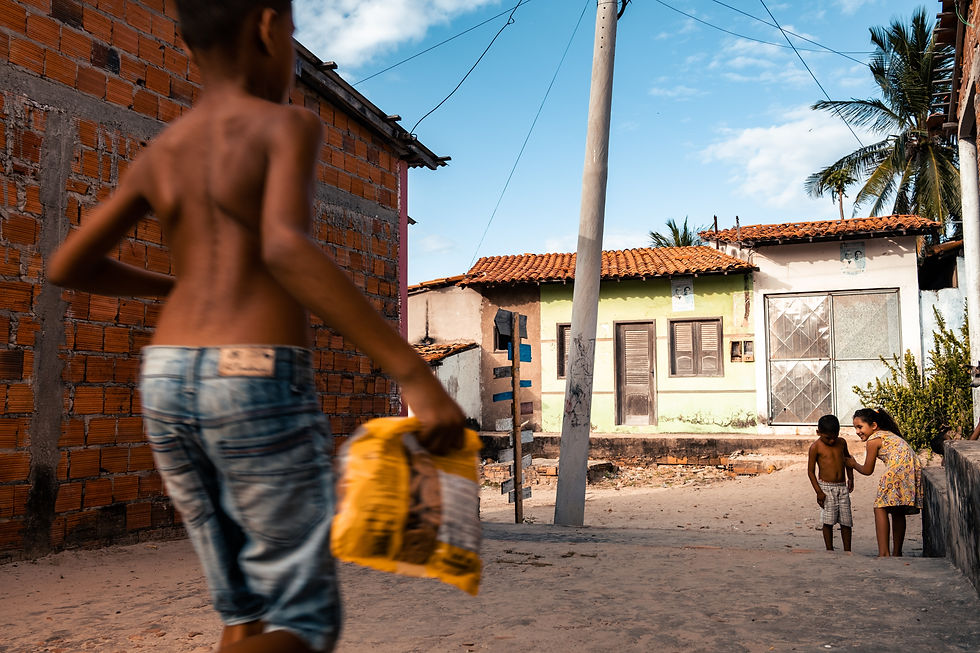Indonesia’s accelerator lab and scaling local innovation
- Editorial Team SDG11

- Jun 27
- 2 min read

Since its launch in March 2021, the UNDP Indonesia Accelerator Lab has operated at the intersection of urban development, climate action, and sustainable resilience, aligning strongly with SDGs 9, 11, and 13. As part of UNDP’s global network of 89 labs across 113 countries, its purpose is to bridge grassroots ingenuity with national policymaking.
Origins & purpose
The Lab was established to address Indonesia’s formidable flood vulnerability, home to around 76 million people, roughly 27% of the population, at risk from flooding. It focuses on urban resilience, poverty reduction, and sustainable infrastructure. By combining thick and thin data, ethnographic field research, digital mapping, and citizen surveys—the Lab seeks to surface context‑specific community insights for policymaking.
Core activities & methods
In 2023, the Lab’s flood-mitigation report across seven urban zones introduced solutions including bamboo breakwaters and flood calendars, exemplifying the fusion of indigenous knowledge with environmental data and policy frameworks. These findings fed into national flood resilience programmes, forming a blueprint for integrating local tech and traditional techniques in governance.
Collaborative foresight for Nusantara
With Indonesia preparing to move its capital to East Kalimantan, the Lab is working alongside ministries and BRIN to embed data-driven, community-centred design into the foresight planning process of the new capital.
Capacity building & knowledge exchange
In February 2025, the “Grassroots to Greatness” event in Jakarta convened over 100 policymakers, researchers, private-sector actors, civil society and youth innovators to spotlight scalable urban solutions. Such cross-sector convenings are playing a catalytic role in advancing inclusive policy innovation.
Impact metrics & future innovations
Over its first three years (2021–2025), the Lab has advanced its influence through:
· Injecting community-generated data and ethnographic evidence into Jakarta and national flood resilience projects.
· Authoring policy briefs leveraging indigenous knowledge and citizen science.
· Exploring low-cost sensor networks, machine learning dashboards, and real-time citizen science, intended to democratise environmental monitoring.
Why it matters
This approach aligns squarely with several SDGs:
· SDG 11: mitigation of urban floods through local-based resilience strategies.
· SDG 13: deploying natural-based adaptation solutions.
· SDG 9: fusing community creativity with innovation and infrastructure for sustainable governance.
The Lab exemplifies a scalable social-innovation model, one where ethnography, civic insight, R&D methods, and multi-sector partnership coalesce to influence national development systems. Its work embeds agile, human-centred governance, grounded in verifiable real-world data.
Stories from the field
Profiles of figures like Aisha Marzuki and Muhammad Didi Hardiana illustrate how local narratives and ethnographic depth have shaped flood‑resilience policies. Their work highlights the synergy of technology and tradition, whether via ML dashboards intertwined with indigenous flood calendars or community‑led bamboo infrastructure.
Similarly, the foresight process for Nusantara showcases how multi‑sector collaboration—Ministries, BRIN, local think‑tanks, youth communities, can craft resilient city plans based on both data and lived experience.
The Indonesia Accelerator Lab has established a transformative model for sustainable urban governance that combines grassroots innovation, data-driven tools, and cross‑sector collaboration. As the world grapples with climate uncertainty and rapid urbanisation, Indonesia’s experience offers valuable insights for achieving global SDGs. Continued expansion of such labs and investment in community-integrated data systems remain vital.
For further insights into community-led resilience and innovation labs, explore:



